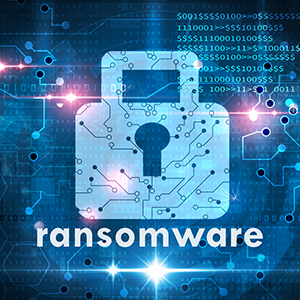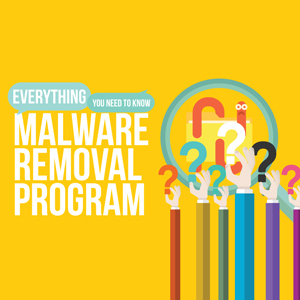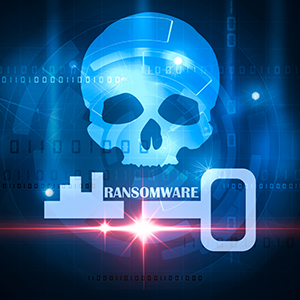So Ransomware Hits the Computer – How to Remove it?
Updated on October 21, 2022, by Xcitium
Ransomware hitting the computer is devastating. This malware encrypts files and locks computer, rendering them useless. But with ransomware keeps growing more sophisticated, the chances of getting infected with ransomware are higher. So what to do if ransomware hits your computer?
1. Isolate the Infected Device
Isolating the infected computer is the first thing that must be done when ransomware hits the computer. Ransomware propagates within the network to encrypt more files or lock more devices. To prevent the other devices from getting infected, disconnect the ransomware infected computer from the network.
2. Disable Ransomware in the Computer
Disabling ransomware in the computer prevents it from encrypting more files. Type MSCONFIG, go to Startup, disable any suspicious application. Verify the publisher, if the publisher is unknown it could be ransomware. Once ransomware is disabled, terminate its process in Task Manager. Click on the Processes Tab, look for the same app you’ve found in Startup and end its process.
3. Download an Anti Malware
With ransomware disabled, you can reconnect the device to the network to download an anti malware software. Note that erasing ransomware from the computer kill your chances of recovering the files by paying the ransom. On the off chance that you plan on recovering the files by paying the ransom, never erase ransomware as that also deletes the encryption key necessary to restore the files. Just keep it disabled.
If the files have been backed up, you can proceed with the ransomware removal process using a ransomware cleaner such as Xcitium Advanced Endpoint Protection. Download and install the anti malware software. Once installed, the ransomware cleaner takes care of the ransomware removal from the computer. When the removal is finished, restart the computer. That should have eliminated ransomware from the computer.
4. Spread Awareness
Spreading awareness prevents the other devices in the local network from getting infected with ransomware. If you have figured that ransomware has got into your computer through a phishing email, let the other users know, so they won’t fall for the same trick. Prevention is always better than cure.
Why Should you Choose Xcitium Advanced Endpoint Protection
Xcitium Advanced Endpoint is the best ransomware cleaner. It deletes ransomware without a trace. Once ransomware is deleted, the computer is back to a clean state. Since ransomware is difficult to remove, it’s always best to prevent ransomware from ever reaching your computer. Better invest on the best ransomware cleaner such as Xcitium Advanced Endpoint Protection.
It is designed to protect the endpoint devices. In any case if the network is for personal or business use, you need endpoint security. An endpoint protection software is created to prevent infection on endpoint devices that can spread inside the network. Any endpoint device can serve as an entry point of malware, so it is critical to keep it secure. Especially nowadays, hackers target internal users to hack the entire network.
Xcitium Advanced Endpoint Protection monitors the endpoints and network activities. Once installed on the central server, through RMM or Remote Monitoring Management, the installation of the client software on each endpoint device can be accomplished remotely. The client software is the application that is connected to the security software that sends and receives threat reports. When a threat is detected in an endpoint, the information is transmitted to the other endpoint devices for immediate protection.
Xcitium Advanced Endpoint Protection also has Auto-Containment that automatically contains a suspicious file when it enters the computer. It replicates the hard drive within the virtual container where the file is contained to observe how it behaves. If it shows any malicious activities, it is removed from the computer. The Auto-Containment is one of the advanced security features of Xcitium Advanced Endpoint Protection, by denying the file’s access to the computer until it is confirmed safe, it renders a zero-day threat on each endpoint device.
Any anti malware software or ransomware cleaner tool without a defense against fileless malware can be considered weak. Especially with the proliferation of fileless ransomware. To counter a fileless malware attack, Xcitium developed HIPS or Host Intrusion Prevention System that takes care of fileless malware. If a fileless malware attempts to access the computer memory, there’s HIPS that monitors the computer memory and registry against unauthorized modification.
Never settle for a traditional anti ransomware software. Xcitium Advanced Endpoint Protection offers complete ransomware protection not only for the endpoint devices but for the entire network as well. Click here to download.
Get Free Trial Now Free Forensic Analysis
Ransomware Attacks




